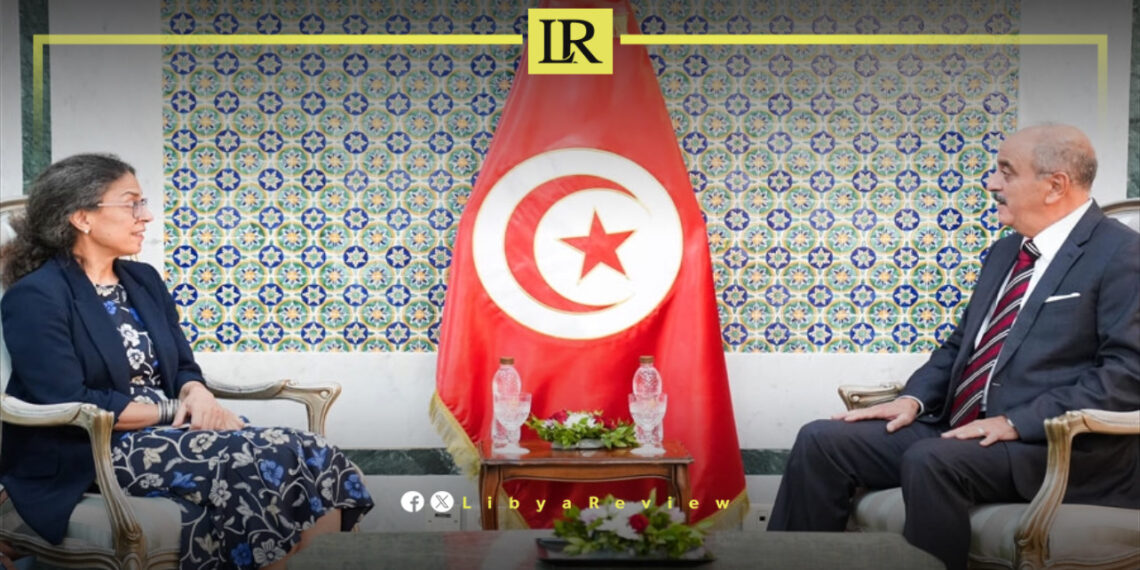On Saturday, Tunisian Foreign Minister Mohamed Ali Nafti held a meeting with Stephanie Khoury, the Acting Head of the United Nations Support Mission in Libya (UNSMIL), to discuss the ongoing situation in Libya.
During the meeting, Nafti reiterated Tunisia’s firm support for a peaceful resolution driven by Libyan stakeholders. He emphasized that Tunisia is committed to backing any dialogue that promotes a Libyan-Libyan political solution to the ongoing conflict.
According to a statement shared by the Tunisian Ministry of Foreign Affairs, Nafti underscored Tunisia’s unwavering support for the United Nations’ mediation efforts in Libya and reaffirmed the country’s readiness to contribute to efforts that foster dialogue, reconciliation, and national unity. He noted that Tunisia’s deep-rooted ties with Libya make it particularly invested in securing a lasting, peaceful resolution to the conflict.
Meanwhile, Khoury expressed her gratitude to Tunisia for its ongoing cooperation and its vital logistical support to UNSMIL. She acknowledged Tunisia’s pivotal role in assisting the UN mission to carry out its work, noting that the support has been essential to UNSMIL’s ability to facilitate dialogue and peace initiatives in Libya.
Tunisia has long held a strategic position as a neutral mediator in the Libyan crisis. As Libya’s neighbor, Tunisia has faced the direct consequences of the conflict, including an influx of refugees and rising security concerns. As such, Tunisian diplomacy has consistently promoted a Libyan-led solution, reflecting its belief that lasting peace must come from within Libya itself, rather than being imposed by external actors.
Since the 2011 downfall of Muammar Gaddafi, Libya has been mired in political division and violence. Various factions, including rival governments and militias, have fought for control over the country, while the international community has struggled to mediate a lasting peace. Despite multiple international interventions, the country remains divided, with the Tripoli-based Government of National Unity (GNU) and the Parliament-designated government still at odds.
Tunisia’s stance, reiterated by Nafti during his meeting with Khoury, focuses on promoting a political solution that comes from the Libyan people themselves. This approach aligns with the broader UN strategy of encouraging Libyan stakeholders to take the lead in the peace process. Tunisia has also played host to many international conferences and meetings aimed at fostering dialogue among Libyan parties.
While Libya has seen some progress in recent years—such as ceasefires and establishing an interim government—the road to permanent peace remains uncertain. Deep-rooted disagreements over issues like oil revenue distribution, military control, and the organization of national elections continue to pose significant challenges.


